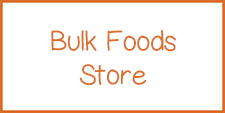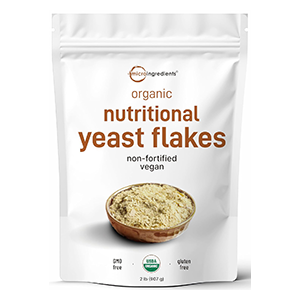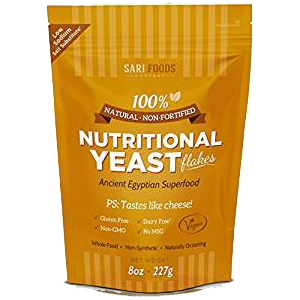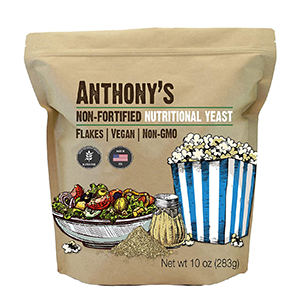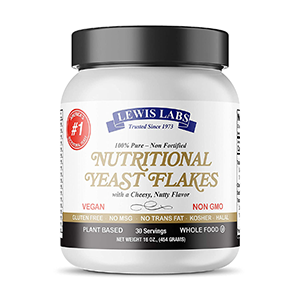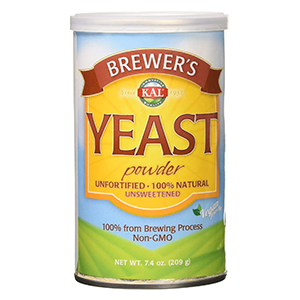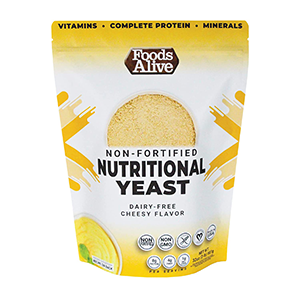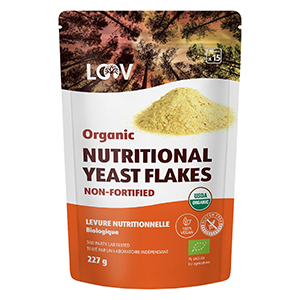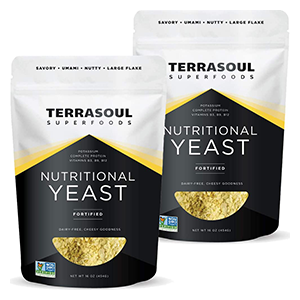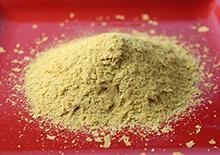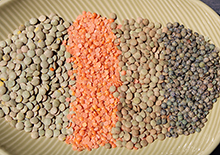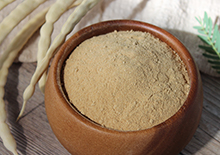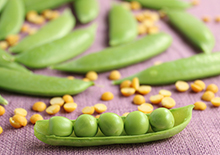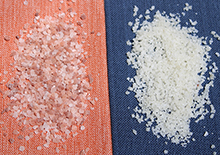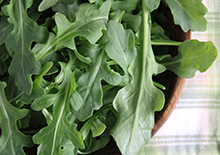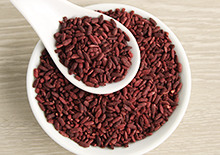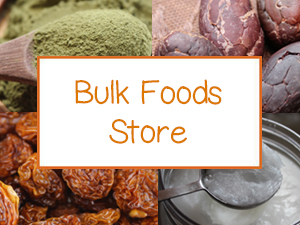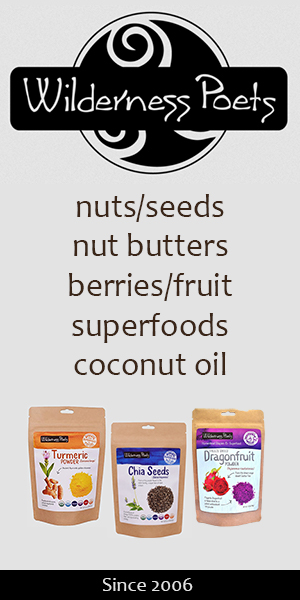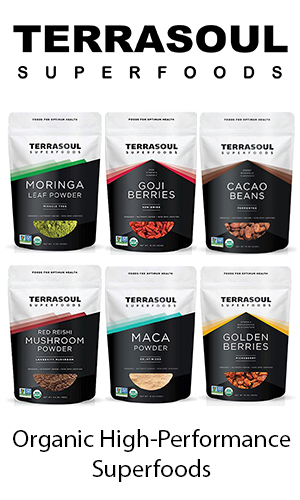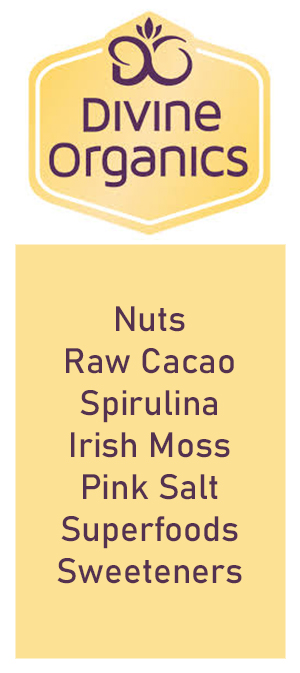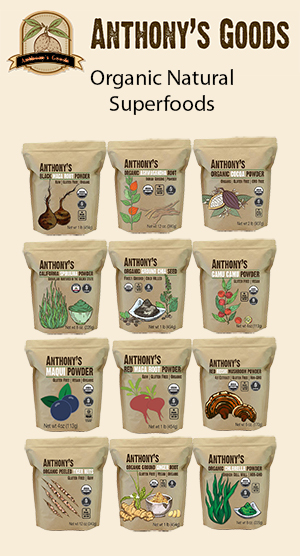- Home
- Plant-Based Cooking
- Non-Fortified Nutritional Yeast
Non-Fortified Nutritional Yeast, Why It's Better!
Intro | Fortified Nutritional Yeast | Why is Fortified Bad | Non Fortified Has Nutrients | Taste | About Non-GMO | Precautions | Shop
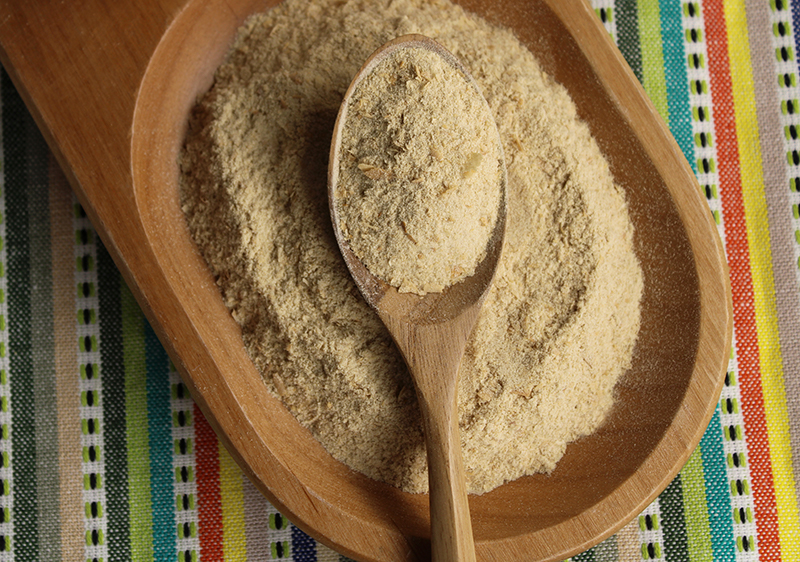
Non-fortified nutritional yeast is finally starting to make its mark in the vegan plant-based world. We've been long awaiting the day when this option would replace its neon-colored counterpart, the version that most are familiar with.
These powdered flakes have been utilized for many decades by health seekers as a versatile staple condiment known for its cheesy, nutty umami flavor.
An especially popular topping sprinkled on popcorn, pasta and salads, it's likewise prepared to make vegan cheese, sauces, dips and to thicken dressings and soups.
Table of Contents
Intro | Fortified Nutritional Yeast | Why is Fortified Bad | Non Fortified Has Nutrients | Taste | About Non-GMO | Precautions | Shop
Nutritional yeast, sometimes called "nooch", is a type of inactive yeast commercially produced in large quantities by fermenting specific strains of the Saccharomyces cerevisiae yeast, the one used in baking and brewing.
To produce it, this species feeds on a sugar medium, which is typically molasses derived from sugarcane and/or sugar beets.
While nutritional yeast can be a tasty food condiment as well as a convenient way to nutritionally enhance the diet with B vitamins, some minerals and protein, there are certain aspects that you may wish to contemplate when choosing your yeast products.
On this page, we will dive into what "non-fortified" nutritional yeast is and why we feel it's a better alternative to the traditional "fortified" variety.

What is Fortified Nutritional Yeast?
One of the downsides to the common nutritional yeast is that it is "fortified" with man-made synthetic vitamins, not food-based ones.
These are the bright yellow flakes frequently found in the bulk food aisle of your local natural market. The color is attributed to its high B-complex vitamins and B12 content.
What does "fortified" mean exactly and why is it not the best in our opinion?
Fortified means that nutrients are added in. Typically, these are vitamins that are produced via chemical synthesis and manufactured artificially in a laboratory to mimic the structure of food-based versions. One of their production benefits is that they much cheaper to manufacture.
In nutritional yeast production, this fortification occurs after the tan-colored yeast liquid is harvested. This cream is pasteurized to inactivate the yeast and synthesized vitamins are added to "fortify" it.
The intention is to enhance the nutrient composition and the often sought-after B12 vitamin, making it highly marketable to vegans.
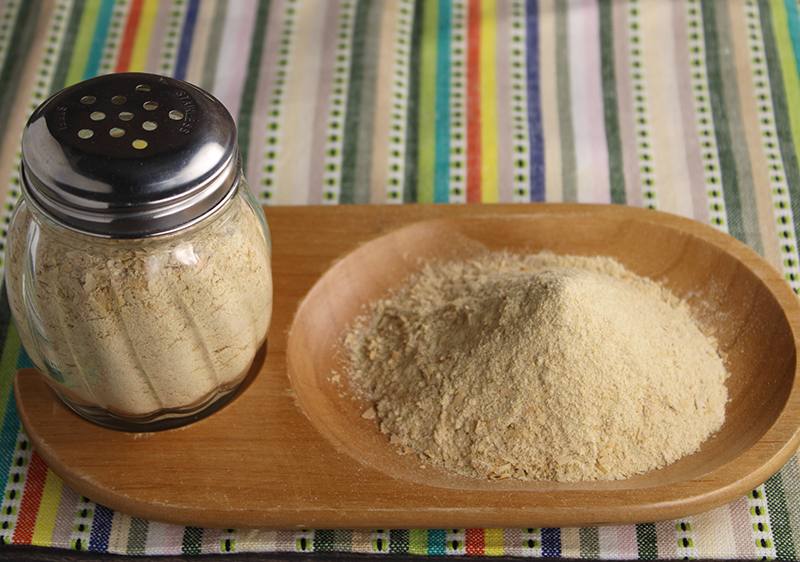
Why is Fortified Bad?
Some of the initial "raw materials" used in the process to make many B-complex vitamins, such as thiamine, often include coal tar or other industrial chemicals that contain small amounts of these said nutrients. After being altered via various chemical reactions, they are purified before being dried and formed with fillers into powders or tablets.
One of the argued disadvantages to these synthetic versions is that they don't contain the important food-based co-factors that nature intended. They basically lack the full range of important enzymes and other trace elements which can influence optimal digestion, absorption and nutritional uptake.
Because the fortified types contain very high amounts of the B vitamins in just one serving, some individuals may experience hypervitaminosis, whereby prolonged intake can cause vitamin overdose or throw off the balance of nutrients.
These artificial isolates can likewise concentrate in bodily tissues and encourage unwanted health issues over time. Some that can cause toxicity when consumed in excess are Niacin (B3), Pyridoxine (B6) and Folate (B9).
For others, an excess of these synthesized nutrients will sometimes go straight through the body, which is evidenced by bright yellow-colored urine.
Bottom Line: Fortified yeast products are not the best option for general dietary supplementation. Once in a while is no big deal, but we would avoid long-term daily use.
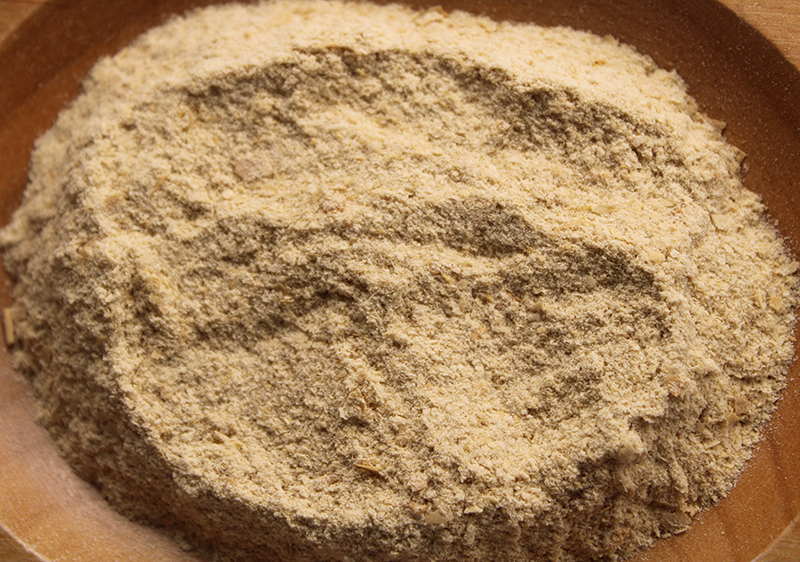
Non-Fortified Nutritional Yeast Has Nutrients
In contrast, non-fortified (as the name implies) is NOT FORTIFIED in any way. This produces a much paler golden color in comparison to the bright yellow type.
The good news is that the Saccharomyces cerevisiae strain used to ferment and make nutritional yeast produces many naturally occurring nutrients and a wide range of the B vitamins, such as B1 (thiamine), B2 (riboflavin), B3 (niacin), B5 (pantothenic acid), B6 (pyridoxine), B7 (biotin) and B9 (folate). Mineral content can include higher amounts of zinc, iron, potassium, phosphorus and selenium.
So, thanks to consumer demand and preferences for non-synthesized ingredients, unfortified nutritional yeast is slowing becoming the new "nooch" alternative. It is now the only one we use hands down.
We always encourage that you get your vitamins and minerals from natural, whole food sources OR from supplements derived from whole food sources. That's why we are especially excited that more and more brands are making improvements to their nutritional yeast products.
Does It Contain B12?
No, non-fortified does not contain B12. However, we would never use fortified nutritional yeast as a reliable B12 supplement for a vegan or vegetarian diet anyway.
Why? Because most all traditional varieties are enhanced with lower-grade synthetic forms of B12 called cyanocobalamin which is known for its very low absorption rate. In our opinion, a natural quality B12 methylcobalamin-based supplement is a much better option for the best vegan uptake of this essential nutrient.
What Does Non-Fortified Taste Like?
The taste is still just as flavorful, but without the chemical aftertaste that fortified versions are often described to have.
It is also a natural source of the taste enhancer GLUTAMIC ACID. This is the compound that provides that mouth-watering umami flavor that can make nutritional yeast-covered popcorn hard to stop eating.
Why Choose Non-GMO Verified Varieties?
Today, you can not only get non-fortified/unfortified, but many brands are also offering organic and non-GMO selections.
Non-GMO verified nutritional yeast is especially important because the yeast strain grows on molasses that's derived from sugarcane or sugar beets. These are top on the list of Genetically Modified foods.
Precautions:
Non-fortified nutritional yeast is generally safe for most people. It is a good idea to consult your nutritionist or healthcare professional prior to use if you are pregnant, nursing, have a serious health condition or are taking any medications.
Shop Related Products (About Affiliates & Amazon Associate Paid Links)
Affiliate Disclaimer: This section contains affiliate product links. If you make a purchase through our recommended links, we receive a small commission at no additional cost to you. Thanks for the support.
